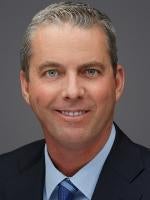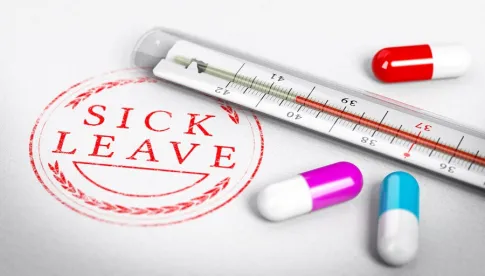A California appellate court recently ruled that an employee may pursue claims under California’s Private Attorneys General Act (PAGA) that her former employer violated the state’s mandatory paid sick leave law.
On February 24, 2023, the California Court of Appeal Fourth Appellate District in Wood v. Kaiser Foundation Hospitals addressed language in the paid sick leave law that provides that “any person or entity enforcing this article on behalf of the public as provided for under applicable state law” is entitled “only to equitable, injunctive or restitutionary relief.” The court ruled that the language limiting remedies was intended to apply only to actions brought under California’s Unfair Competition Law (UCL)—not PAGA.
Background
California’s Healthy Workplaces, Healthy Families Act of 2014, set forth in Labor Code Section 245, generally requires that employers provide employees with at least three paid sick days per year. Labor Code Section 248.5(e) further provides that the labor commissioner or the attorney general “may bring a civil action” to enforce the law, but an individual raising a claim to enforce the act “on behalf of the public” is restricted to “only equitable, injunctive, or restitutionary relief, and reasonable attorney’s fees and costs.”
PAGA, which was enacted in 2004, allows employees to sue on behalf of themselves and other allegedly aggrieved employees of the same employer to recover civil penalties for alleged violations of the California Labor Code. Prior to PAGA, such claims could be brought only by the Labor Workforce Development Agency (LWDA), which could collect civil penalties.
Wood v. Kaiser Foundation Hospitals
Ana Wood is a former nonexempt, hourly employee of Kaiser Foundation Hospitals. In February 2023, she filed a PAGA claim on behalf of herself and other aggrieved Kaiser employees for civil penalties, alleging that Kaiser failed to pay sick leave at “the correct rate.”
Kaiser argued Section 248.5 of the Labor Code implementing the Healthy Workplaces, Healthy Families Act authorizes only the labor commissioner and attorney general to collect penalties, while the remedies for an individual plaintiff are limited to “equitable, injunctive, or restitutionary relief,” not PAGA penalties. Kaiser pointed to numerous federal courts that have held that the state law “expressly prohibits a private plaintiff from recovering PAGA penalties.”
The Court of Appeal’s Decision
The Fourth District rejected the federal court decisions that found the Healthy Workplaces, Healthy Families Act precludes PAGA claims, and it refused to consider minute orders from four superior court cases that reached the same result. Writing for the court, Justice William Dato stated “that an employee cannot file an individual action for violations of [Healthy Workplaces, Healthy Families Act] does not mean the Legislature also intended to preclude a PAGA action based on the same alleged violation.” The justice stated that “PAGA is not a private right of action, but rather a procedural device under which an agent or proxy of the state enforces the government’s ability to collect penalties.”
Justice Dato stated that while a PAGA action is “brought on behalf of the public” who acts as an agent of the state, from the legislature’s perspective a PAGA claims is “not brought ‘on behalf of the public’ but instead on behalf of other aggrieved employees.” The justice further examined the legislative history of earlier versions of the paid sick leave law to conclude that the legislature had the UCL in mind and did not intend to preclude an employee from bringing a PAGA action.
In reaching his conclusion, Justice Data stated that “[g]iven the perceived necessity for mandating minimum paid sick leave, coupled with its documented understanding that traditional government institutions would be unable to adequately assure compliance, it seems inconceivable that the Legislature intended to prohibit PAGA actions to enforce the Act.”
Key Takeaways
The Fourth District stands alone in concluding that a PAGA claim for civil penalties can be based on alleged violations of the Healthy Workplaces, Healthy Families Act of 2014, a statute which expressly limits a plaintiff’s remedies to equitable, injunctive, or restitutitonary relief. However, with several federal court and state trial court judges reaching the opposite conclusion, it is unlikely that this decision will be the final word on the subject. Federal district courts do not have to follow precedent from a state’s intermediate appellate court if a federal court finds convincing evidence that the state’s supreme court likely would not follow it. Moreover, a published decision from one California court of appeal district is neither binding in another district, nor is it binding on a different panel of justices within the same district or division.
Employers can reasonably expect further litigation on this issue and challenges to this decision as a potential outlier. In the meantime, employers may want to consider the possibility that the failure to comply with sick leave laws may open them up to potential PAGA liability.





 />i
/>i
